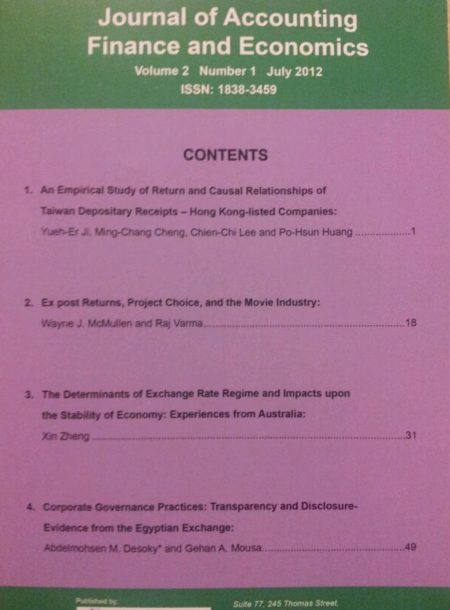Journal of Accounting, Finance and Economics
Vol. 5. No. 1., September 2015, Pages: 101 – 117
Career Development Practices and Workplace Deviance: The Case of Nigeria
Christine Adaobi Nwuche and Continue Anddison Eketu
This paper investigates the relationship between some career development (CD) practices and the incidence of destructive workplace deviance using Robinson and Bannett’s typology of workplace deviance. We hypothesized that the various CD practices would not be associated with reduction in the variants of workplace deviance used for the study. The study was a cross-sectional survey of some manufacturing firms in Port Harcourt, Rivers State, Nigeria. A purposive sampling technique was used to select a sample of 201 respondents from a population of 427 middle level and junior employees. Data generated by means of a questionnaire were analysed using SPSS version 20 and Spearman rank Order Correlation Coefficient (rho) was used to test the hypotheses. Results showed that organisations engage in CD and CD practices were, in varying degrees, associated with reduction in organisational deviance. We conclude that organisation managers may inadvertently be legitimating destructive deviance by their insufficient attention to employees needs and not ensuring fairness in CD practice. We recommend more widespread use of coaching and exposure of more employees to challenging job assignments.

